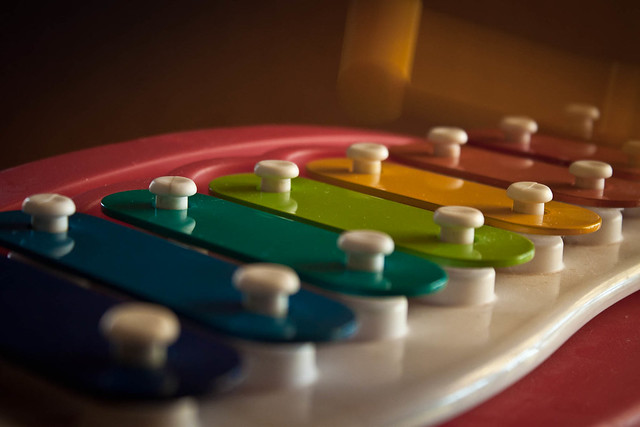
Can You Hear This?
- Hearing Test: http://www.noiseaddicts.com/2009/03/can-you-hear-this-hearing-test/
- Sound Levels: http://makeitlouder.com/Decibel%20Level%20Chart.txt
Listen Smart – Safely Handling the Power of Sound
Notes
- “sound is the soul of life”
- listen to it so that it enriches you but doesn’t hurt you
- above 90 decibels: after 8 hours there is the risk of hearing damage
- 100 dB: damage after 2 hours
- rock concert: 110 to 150 dB
- long term exposure to loud things can really damage your hearing
- hearing loss doesn’t just effect old people
- hearing loss can happen in 30 sec or over years
- irreversible
- don’t get any hearing cells after they are lost
- “temporary threshold shift”
- exposure to intense sound for a short period time can cause damage
- “ringing in the ears” = sign of losing hearing
- ringing in your ears can become permanent (for most its temporary)
- prevention = best option
- ear plugs = don’t change quality of sound, just how you hear it
- stay away from direct source ; earbuds, speakers, loud music in car, etc
- avoid stimulants ; alcohol, etc
- jet plane at 100ft = 140 dB
- pain starts to occur at 125 dB
- between 10% and 20% of high school age students have some hearing loss
- in the u.s. one out of 12 30-year olds is already hearing impaired
- more than a third of all hearing loss is attributed noise
- 28 million americans are hearing impaired and an estimated 500 million experience hearing loss worldwide
3M™ Hearing Conservation Worker Training Video
Notes
- sound is measured in decibels
- 30 dB = quiet whisper
- 80 dB = vacuum cleaner
- 112 dB = power saw
- 70 dB = no risk of damage
- 85 dB = hearing is at risk after 8 hrs of exposure
- 91 dB = hearing is at risk after 2 hrs of exposure
- 100 dB = hearing is at serious risk after 15 mins
- 115 dB = damage can occur within one min
- 140 dB = immediate hearing damage/pain possible
- also comes with hearing damage:
- tinnitus = ringing of ears
- muffled hearing
- examples of consequences
- stress
- fatigue
- tension
- irritability
- anger
- negativity
- depression
- withdrawl
- high blood pressure
- steps to help reduce to risk
- measure the noise
- control the noise
- check hearing regularly (monitor worker hearing)
- wear hearing protection regularly
- report problems to your supervisor
- measure workplace noise
- level may very by:
- area
- job function
- machine or tool being used
- production schedule
- steps to reduce the risk
- reduce noise levels at source
- use quieter equipment or procedures
- block the sound path
- use noise controls as designed
- a hearing check can detect a problem even before you do
SoundAdvice.info For Audio Career Tips
Notes
- Concert Halls and Theaters
- exposed to high levels of noise . on stage, off stage, in a pit, etc
- length of exposure is as important as sound level
- some instruments, like brass, cause damage to those around them
- others, like piccolo, cause damage to self because its so close to the ear
- control, reduce and monitor exposure to noise
- use risers to make sure sound goes over head
- use drapes, screens and floor coverings
Chart of Sound in the Environment
